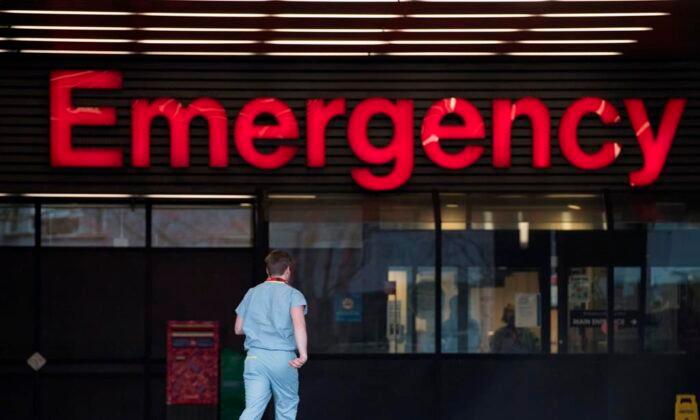In a global ranking of 30 countries with universal health-care programs, Canada ranks near the bottom for its numbers of doctors, hospital beds, and MRIs and for long wait times, despite being one of the highest-spending countries on health care, according to a new study by the Fraser Institute.
According to the executive summary, “although Canada’s is the most expensive universal-access health-care system in the OECD, its performance is modest to poor.”
After adjusting for age-profile differences among the countries—to account for the higher health-care needs of seniors over 65—in 2020 Canada ranked highest in health-care spending as a percentage of the economy, at 13.3 percent, and eighth highest for health-care spending per capita.
Last on Wait Times
Canada ranked worst out of 10 comparable countries that record wait times for medical care. It had the lowest percentage of patients (38 percent) waiting four weeks or less to see a specialist, and the lowest percentage of patients (62 percent) who waited under four months for elective surgery.Out of the 30 developed countries, Canada ranked near the bottom (28th) for doctor availability, with only 2.8 doctors per 1,000 people. In terms of care beds, Canada ranked 23rd out of 28 for regular physical care beds, with 2.2 beds per 1,000 people—and 22nd out of 29 for psychiatric beds available, with 0.38 beds per 1,000 people.
Canada also ranked near the bottom of the list (26th out of 29) for the availability of magnetic resonance imaging (MRI) machines, with 10.3 MRIs per million people, and 27th out of 30 for CT scanners, with 15 scanners per million people.
Canada performed better than average in terms of breast cancer, colon cancer, and rectal cancer survival rates after treatment, but ranked as the worst country (20th out of 20) on the indicator measuring obstetric trauma during vaginal childbirth.
“Canada ranked last (or close to last) on all four indicators of timeliness of care; and ranked seventh (out of ten) on the indicator measuring the percentage of patients who reported that cost was a barrier to access,” said the study.
Canada ranks as average (15th out of 30) for its availability of nurses, and 9th out of 30 for the availability of long-term care beds for seniors over 65. Canada performed better than the average country in providing coronary artery bypass grafts and knee replacement surgery.
The study said the availability of medical resources is a basic requirement for a properly functioning health-care system. “Data suggests that Canada has substantially fewer human and capital medical resources” compared to countries that “spend comparable amounts of money on health care,” it said.





